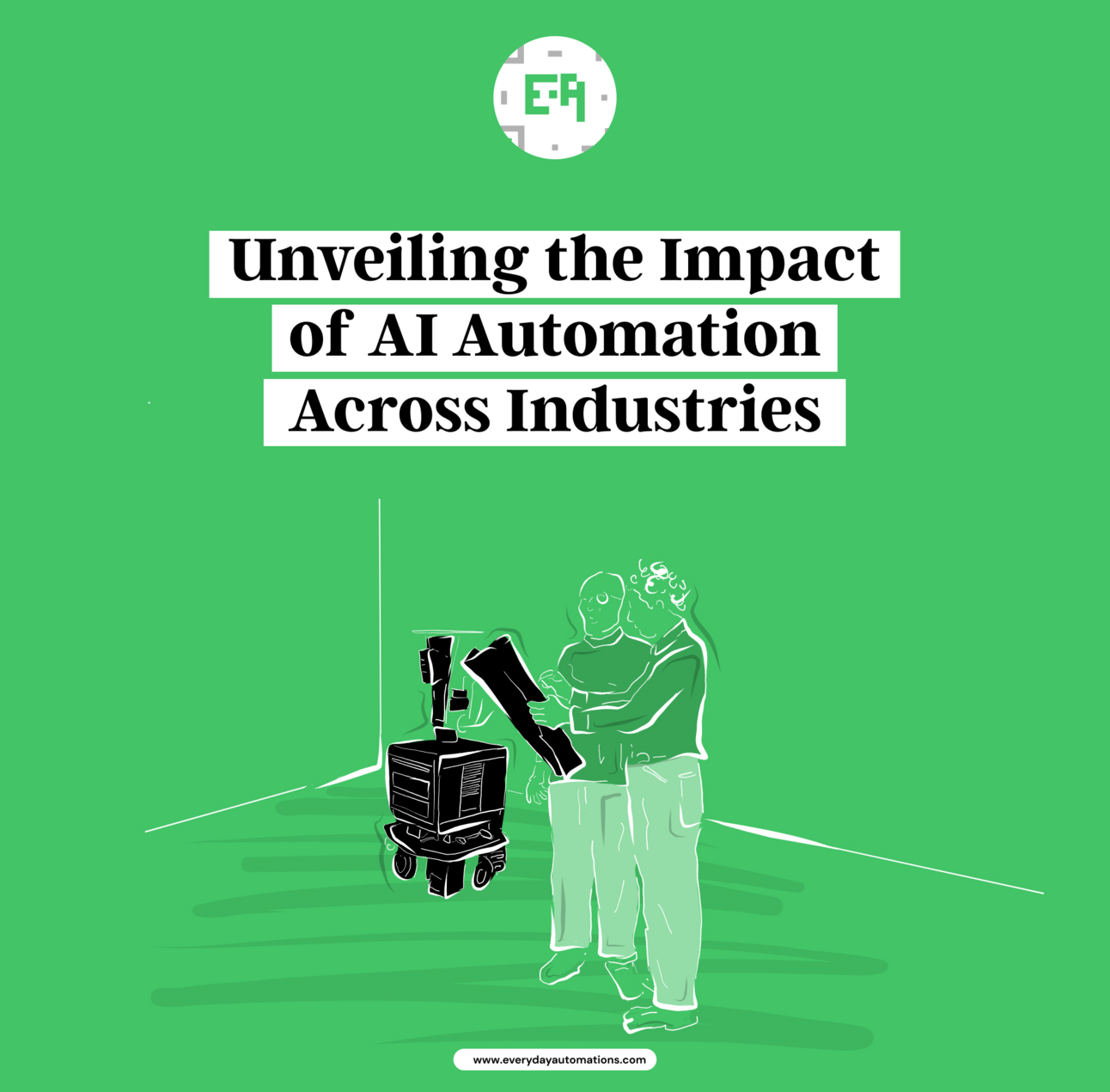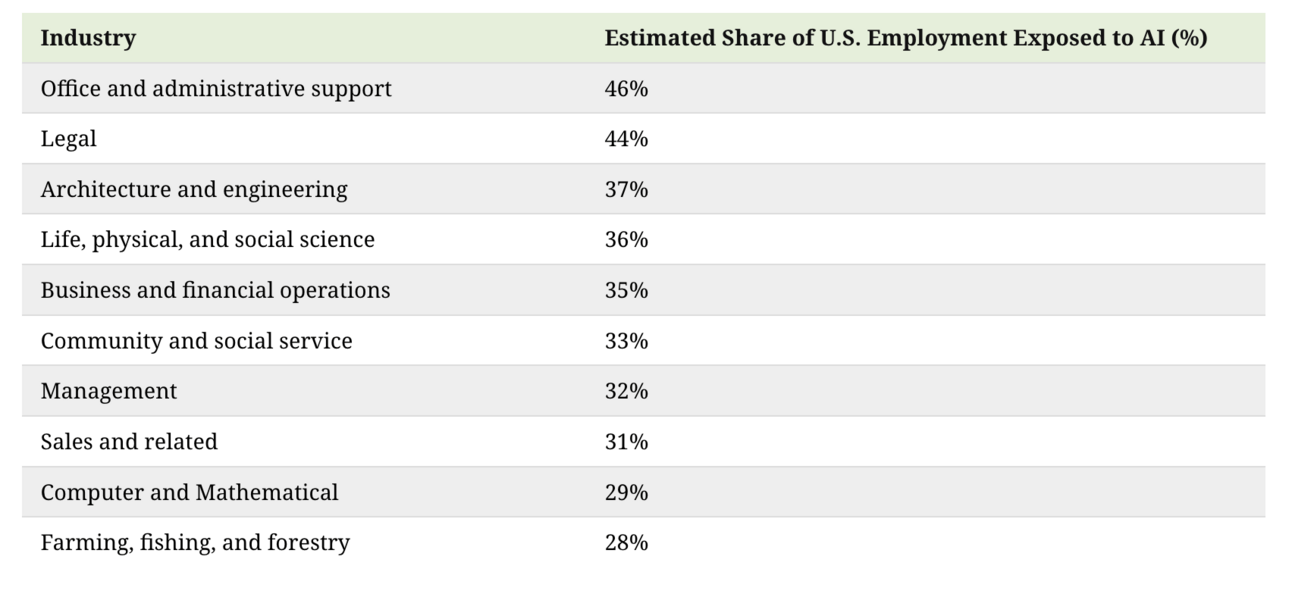- Everyday Automations
- Posts
- Unveiling the Impact of AI Automation Across Industries
Unveiling the Impact of AI Automation Across Industries
Explore the transformative impact of AI on various sectors, from office support to legal, and understand the challenges and opportunities in this new era of technological advancement.

Artificial intelligence (AI) is no longer just a buzzword but a tangible force driving change. Its impact on the global workforce is profound and far-reaching.
A recent analysis by Goldman Sachs Global Investment Research, utilizing the O*NET occupational database, offers a window into how AI-driven automation might reshape U.S. industries.
The study categorizes various sectors based on their susceptibility to AI automation. Notably, office and administrative support top the list, with an estimated 46% of jobs in the industry exposed to AI automation.
This transformation will significantly alter routine tasks such as data entry, scheduling meetings, and document management. Close behind is the legal sector, with 44% exposure, where AI could revolutionize processes like contract analysis and even assist in predicting court case outcomes.

In contrast, sectors heavily reliant on manual labor, such as construction and extraction, show considerably lower potential for AI integration. This distinction underscores the diverse impact of AI across different fields, highlighting that while some jobs may become more efficient or evolve, others might remain relatively unchanged in the short term.
The pace and extent of AI's impact are contingent on two critical factors: the technology's advancement and its adoption by people and businesses. These elements are uneven globally, influenced by varying optimism and readiness toward AI integration. Under an aggressive scenario, AI automation could potentially influence up to 300 million jobs worldwide and lead to a 7% increase in annual GDP, equaling about $7 trillion.
This prospect of AI as a major economic catalyst makes it imperative for investors and businesses to stay informed and adapt to these changes. In response, financial indices such as the MSCI ACWI IMI Robotics & AI Index have been developed to benchmark companies associated with AI, robotics, and automation, providing a crucial tool for investors navigating this evolving landscape.
The transformative potential of AI extends beyond just automation. It promises to redefine job roles, create new sectors, and demand a rethinking of skills and education. As routine tasks are automated, the value of human creativity, problem-solving, and emotional intelligence in the workforce could be accentuated, leading to a renaissance of sorts in certain professions.
However, this transition also poses significant challenges. There's a pressing need for policy frameworks and educational reforms to manage the displacement of jobs and ensure equitable access to the opportunities created by AI. Ethical considerations around AI deployment, data privacy, and decision-making transparency will become increasingly critical.
AI's journey from a theoretical concept to a practical tool shaping our daily lives and work is a testament to human ingenuity and technological advancement. As AI continues to evolve and integrate into various sectors, it presents a unique blend of opportunities and challenges. The future of work, influenced heavily by AI, is not just about automation but about adaptation, innovation, and the human-AI synergy that could redefine our times' economic and social fabric.
References:
For the overview and methodology: Overview and Methodology
For the estimated share of U.S. employment exposed to AI in different industries: Estimated Share of U.S. Employment Exposed to AI
For the expected impact on the office and administrative support and legal industries: Impact on Specific Industries
For the overall impact of AI on labor productivity and the global job market: Global Impact of AI

Reply